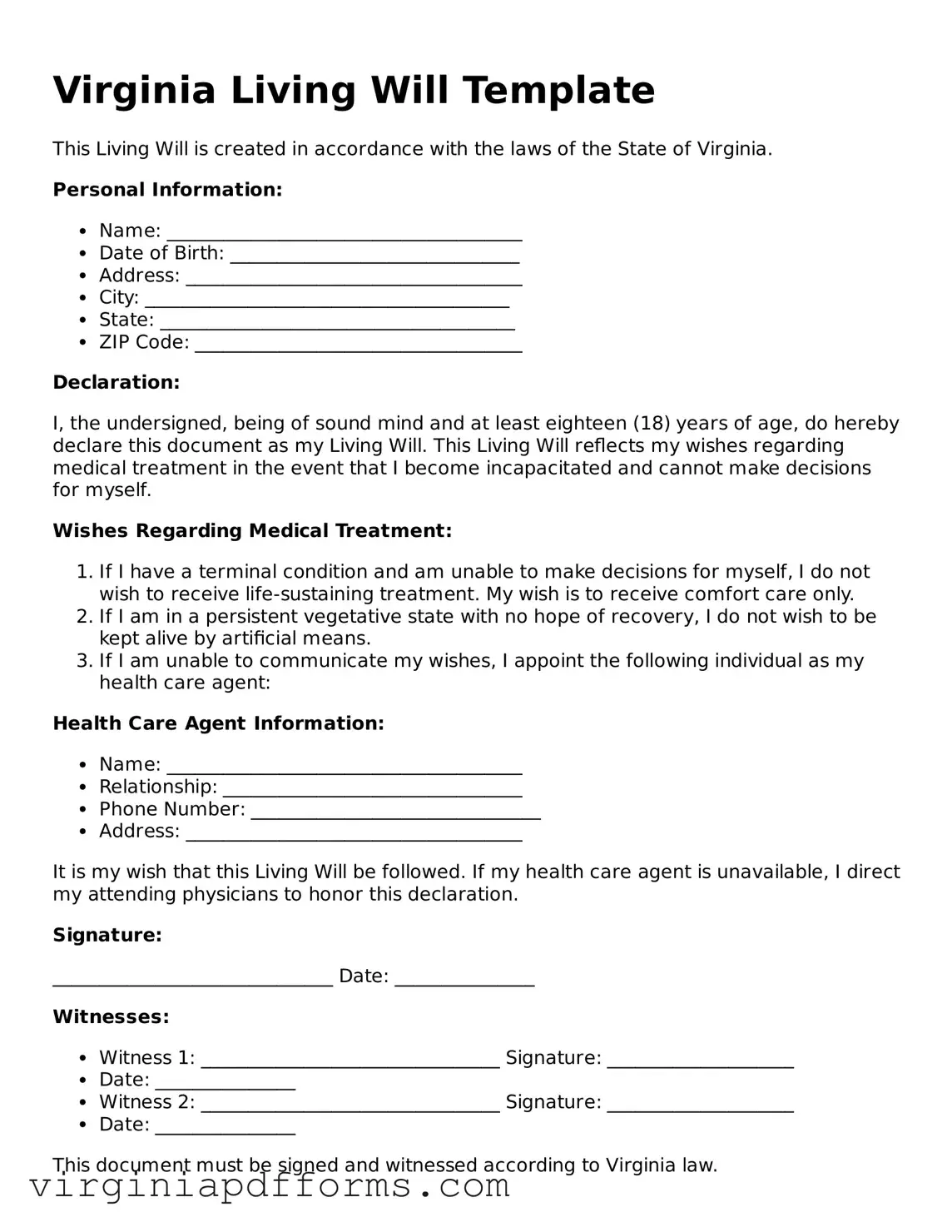Attorney-Approved Virginia Living Will Document
A Virginia Living Will form is a legal document that allows individuals to outline their preferences for medical treatment in the event they become unable to communicate their wishes. This form plays a crucial role in ensuring that personal values and choices regarding end-of-life care are respected. By clearly stating one's desires, individuals can provide guidance to healthcare providers and loved ones during difficult times.
Access My Document Now

Attorney-Approved Virginia Living Will Document
Access My Document Now

Access My Document Now
or
Free Living Will File
Need this form wrapped up fast?
Finish Living Will online — edit, save, download without effort.